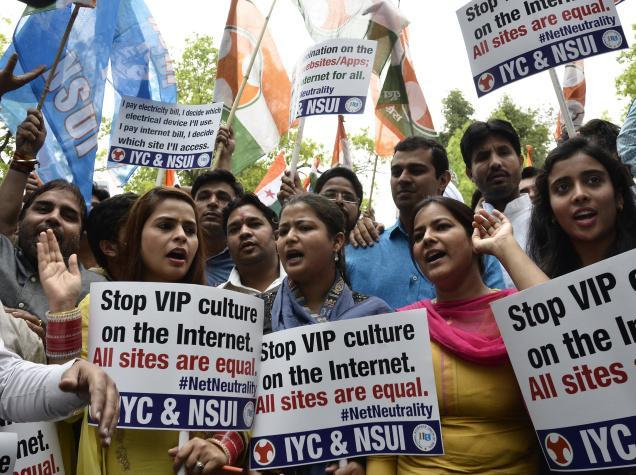Definition of Net Neutrality should be flexible: Pranesh Prakash
-
Internet Governance

17 February 2024
The article by Sanjay Vijaykumar was published in the Hindu on May 10, 2015. Pranesh Prakash is extensively quoted.
The definition of Net Neutrality should be flexible enough to allow for experimentation with different models of providing cheaper Internet access and such experimentation needs to be regulated by the telecom regulator, Telecom and Regulatory Authority of India (TRAI) according to Internet expert Pranesh Prakash.
Mr. Prakash was reacting to the business model of Boston-based start-up Jana, which said it had figured out a way to offer billions of people in the emerging world free access to the Internet, without violating the web’s open nature. The firm has launched Jana Loyalty, a product that seeks to reward its smartphone users in two ways. One, it reimburses users the cost of downloading and using an app of Jana’s clients. Two, it gives free additional data with which the user can access any content online.“While Jana is like Internet.org, since it is Internet service-specific zero-rating, Jana Loyalty is what my colleague Sunil Abraham dubs a ‘leaky walled garden’. The walled garden (site-specific access) exists, but you also get free access to the whole of the Web in return. Given that there is no one universal definition of Net Neutrality, and given India currently doesn’t have a definition, I can’t answer if this is a violation of Net Neutrality,” said Mr. Prakash, who is Policy Director at The Centre for Internet and Society (CIS), a Bangalore-based, non-profit, research and policy advocacy.Facebook’s attempts to provide a limited version of the Internet free has been attracting criticism from supporters of Net Neutrality, especially in India. Critics argue that Facebook’s Internet.org, which offers users free access to a bouquet of pre-selected Web sites, violates the principle of Net Neutrality by choosing what is accessible and what isn’t. Facebook has reacted to this by opening up Internet.org to all developers who meet its guidelines. Mr. Prakash said the definition of Net Neturality should be flexible enough to allow for experimentation with different models of providing cheaper Internet access, including Jana Loyalty.
“However, such experimentation ought to be regulated by the telecom regulator. To minimise harm, they should be allowed on a case-by-case basis after the regulator has had an opportunity to conduct risk-benefit analysis against four goals it should seek to promote — universal and affordable access; effective competition; protection of consumers against harm; and diversity that arises from the openness and interconnectedness of the Internet,” he added.
Net neutrality is a principle that says Internet Service Providers (ISPs) should treat all traffic and content on their networks equally.

Why now?
Late last month, Trai released a draft consultation paper seeking views from the industry and the general public on the need for regulations for over-the-top (OTT) players such as Whatsapp, Skype, Viber etc, security concerns and net neutrality. The objective of this consultation paper, the regulator said, was to analyse the implications of the growth of OTTs and consider whether or not changes were required in the current regulatory framework.
What is an OTT?
OTT or over-the-top refers to applications and services which are accessible over the internet and ride on operators’ networks offering internet access services. The best known examples of OTT are Skype, Viber, WhatsApp, e-commerce sites, Ola, Facebook messenger. The OTTs are not bound by any regulations. The Trai is of the view that the lack of regulations poses a threat to security and there’s a need for government’s intervention to ensure a level playing field in terms of regulatory compliance.
